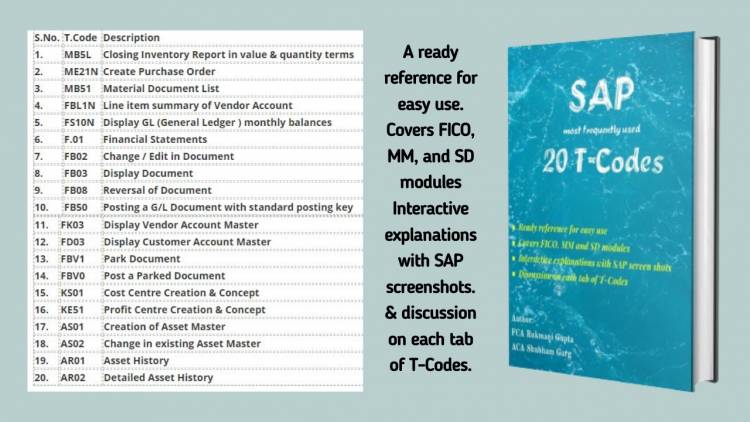Exemptions For Private Limited Companies Under Companies Act, 2013
The Companies Act, 2013 (CA 2013), which implemented from 12 September 2013, let in serious difficulties for private limited companies.
There have been laws that have been created relevant to such personal firms as registered government firms. Such participants’ depictions did not go unnoticed and the Ministry of Corporate affairs (MCA) gave numerous exemptions to private limited companies by way of Companies (Amendment) Act, 2015 and also vide its notification dated 5 June, 2015.
MCA has given many relaxation and exemptions to Private Companies vide notification No. G.S.R. 464(E) dated: 5th June, 2015 and G.S.R. 583(E) dated 13th June 2017.
Before we go into the in depth details of exemptions enjoyed by the private and small companies for ease of business and peripheral compliances, let us see the definition of a private company and small company:
Subsection 78 of section 2 defines a Private Company:
“private company” means a company having a minimum paid-up share capital of one lakh rupees or such higher paid-up share capital
(i) restricts the right to transfer its shares;
(ii) except in the case of One Person Company, limits the number of its members to two hundred:
Provided that where two or more persons hold one or more shares in a company jointly, they shall, for the purposes of this clause, be treated as a single member:
Provided further that—
(A) persons who are in the employment of the company; and
(B) persons who, having been formerly in the employment of the company, were members of the company while in that employment and have continued to be members after the employment ceased, shall not be included in the number of members; and
(iii) prohibits any invitation to the public to subscribe for any securities of the company.
Subsection 85 of section 2 defines a Small Company:
“small company” means a company, other than a public company,-
(i) paid-up share capital of which does not exceed fifty lakh rupees or such higher amount as may be prescribed which shall not be more than ten crore rupees five crore rupeesor
(ii) turnover of which as per profit and loss account for the immediately preceding financial year as per its last profit and loss accounttwenty crore rupees:
Provided that nothing in this clause shall apply to—
(A) a holding company or a subsidiary company;
(B) a company registered under section 8; or
(C) a company or body corporate governed by any special Act
Now let us analyze the exemptions:
Chapter 1, Section 2(76)(viii) & Section 188
- This section of the Companies Act, 2013 defines related party.
- The Act is amended for private companies as definition of the term “related party” provided in Section 2(76) is amended.
- Any transactions entered into by private companies with its holding companies, the subsidiary companies, the associate companies or fellow subsidiary companies are absolved.
- Therefore, the transactions of a private company with exempted entities will not come under the gamut of a RPT and are exempted from the compliance of the provisions of Section 188 of the 2013 Act.
- Before amendment under Section 188 the RP shareholders (interested shareholders) were not allowed to vote at a general meeting of the shareholders for a resolution to approve any contract or arrangements between the company and a related party (in which they are interested). Now the same has been exempted for private companies. Hence, interested shareholders will be eligible to cast their votes in interested transactions. This is a benison to private companies because they had negligible disinterested shareholders.
- In spite of the above exemptions the following transactions prevail under the purview of RPT of private companies:
- The Director, the Key Managerial Personnel of holding company or their relatives will continue to be in the gamut of RPT.
- The transactions between private companies where managers are in the same capacity.
- Disclosure of the RPT.
Chapter I, Section 2, clause 40
- This section of Companies Act, 2013 deals with financial statements.
- Before amendment, start up private companies had to attach cash flow with financial statements.
- With the amendment the start-up private company is not required to include the cash flow statement in the financial statement.
Chapter IV, Section 43 and Section 47
- Section 43 of the Companies Act, 2013 deals with kinds of share capital and Section 47 deals with voting rights.
- Before amendment Section 43 mandated all companies should have only two types of shares:
- Equity shares (Equity shares with or without the differential rights to dividend, voting was allowed, subject to conditions.)
- Preference shares
- Before amendment Section 47 of the Act, the equity shareholders were entitled to cast their votes on all resolutions, whereas the preference shareholders were qualified to vote only on the resolutions which would affect their rights or which are to winding up or the reduction of capital as prescribed under the 2013 Act.
- Section 43 and 47 are not applicable to a private company if the articles of association or the memorandum of association of private company authorize the same.
- With this exemption, the private company may have any kind of share capital in accordance with their articles. It may issue any kind of shares.
- This mitigation succours the private limited companies in structuring shares and can earn priority on the dividend, liquidation and the entitlement to vote. It will be a benefit to foreign investors also.
Chapter IV, Section 62(1)(a)(j), Section 62(1)(b) and Section 62(2)
- Section 62 of the Companies Act, 2013 deals with further issue of share capital.
- Before amendment of Section 62 (1)(a)(i), all companies issuing further shares had to remain open for subscription for minimum 15 days and maximum 30 days.
- With exemption of this to private companies, if 90% of the members agree in writing then the offer can be kept open for lesser than 15 days. Consent can be sent in electronic mode also.
- In Section 62(1)(b) before amendment to offer stock options to employee’s (ESOP), companies had to get the consent of members by way of special resolution under section 62(1)(b).
- Now, consent of simple majority (ordinary resolution) would suffice.
- It is important to note that it is applicable to private companies as well as public companies.
- Before amendment Section 62(2) requires notice shall be sent at least three days before the opening of the issue.
- With exemption of this section to private companies, notice can be sent even lesser than three days before the issue opens, if 90% of the members agree in writing.
Chapter IV, section 67.
- Section 67 of Companies Act, 2013 deals with Restrictions on Purchase by Company or giving of loans by it for purchase of its shares.
- It restricts the companies to buy its own shares, except by way of reduction of share capital or redemption of preference shares.
- Private companies are exempted from Section 67 with reference to the following:
- in whose share capital no other body corporate (includes foreign company, LLP has invested any money;
- if the borrowings of such a company from banks or financial institutions or anybody corporate is less than twice its paid up share capital or fifty crore rupees, whichever is lower; and
- such a company is not in default in repayment of such borrowings
subsisting at the time of making transactions
Chapter V, clauses (a) to (e) of sub-section (2) of section 73.
- Section 73 of Companies Act, 2013 deals with prohibition of acceptance of deposits from public.
- From 01 April 2014, companies are prohibited from inviting, accepting or renewing deposits from public. Only eligible companies (public limited companies with net worth of Rs.100 crore or turnover of Rs.500 crore) can invite, accept or renew deposits from public, subject to several conditions.
- However, companies (public and private) are permitted to accept deposits from its members subject to provision of the Rules and the following conditions:
(a) Company issues circular in form DPT-1 to its members;
(b) Files form DPT-1 with the ROC within 30 days before the date of its issue to
members;
(c) maintains liquid asset of 15% of amount of deposit maturing during the financial and the financial year next following and keeping it in a separate bank account with a scheduled bank to be called as deposit repayment reserve account;
(d) providing deposit insurance;
(e) certifying that the company has not defaulted in repayment of deposit or payment of interest thereon; and
(f) securing deposit accepted from members by creating charge over assets of the company OR where no such charge is created the deposit shall be called “unsecured
deposits” and stated so in every circular, for advertisement etc.
- Now, provisions of section 73(2)(a) to (e) is no longer applicable to private companies.
- Thus, private companies are permitted to accept deposits from its members subject to provision of the Rules and they need not satisfy aforesaid five conditions (a) to (e) if:
(a) amount of deposits from members does not exceed aggregate of the paid-up share capital and free reserves, and
(b) details of monies accepted as deposit from members is filed with the ROC.
To Summarise:
- As per the Companies Act of 2013, companies are permitted to accept the deposits from its members subject to the fulfillment of certain conditions as per provisions of Section 73 of the Act relating to the acceptance of deposits viz. circular about the financial position, credit rating, the deposit repayment reserves, deposit insurance and certification etc.
- The exemption notification specified that the provisions under Section 73 of the Act will not be applicable to the private limited companies accepting deposits from members which are less than 100% of its paid up share capital and free reserves.
- Exempted private companies are needed to file details of such deposits from the members with the Registrar of Companies in such manner as may be specified.
- In addition to that, an amendment on Companies (Acceptance of Deposits) Second Amendment Rules 2015 made on 15th September, 2015 exempted the deposit received from the relative of director of private company provided such relative furnish a declaration that the amount isn’t being given out of funds acquired by him by borrowing or accepting the loan or deposits from others and that the company must disclose money so accepted in the Board’s Report.
Chapter VII, clause (g) of subsection (1) of section 92
- Section 92 of the Companies Act, 2013 deals with annual return.
- Private companies which are small companies need to disclose aggregate amount of remuneration drawn by directors. They need not give details of remuneration of all the directors and key managerial personnel individually.
- Except above every company shall prepare an annual in the prescribed form containing the particulars as they stood on the close of the financial year.
- Also provided that in relation to One Person Company, small company and a private company (if such private company is a start-up), the annual return shall be signed by the company secretary, or where there is no company secretary, by the director of the company.

Chapter VII, sections 101 to 107 and 109
- The sections of the Companies Act, 2013 under chapter VII are:
- Section 101: Notice of general meetings
- Section 102: explanatory statement to be annexed to notice of general meetings
- Section 103: Quorum for general meetings
- Section 104: Chairman of general meetings
- Section 105: Proxies Section 106: Restrictions on voting rights
- Section 107: Voting by show of hands
- Section 109: Demand for poll
- Private companies are now given option to adopt provisions stated above or omit the same or provide their own regulations by congruously providing for the same in their articles of association.
- The amendment made to the Companies Act of 2013 reinstated the powers of the private companies to decide their own procedure regarding the conduct of general meetings by incorporating the provisions in their articles of association.
- With these exemptions the private companies are facilitated with the wings of flexibility to decide their own procedure for conducting the general meetings by incorporating the provisions in their articles of association.
- Now, the private companies should aptly amend their articles and lay down the necessary provisions in the same.
Chapter VII, clause (g) of sub-section (3) of section 117
- Section 117 f the Companies Act 2013 deals with resolutions and agreements to be filed.
- Private companies are exempted from filing following Board Resolutions with the Registrar of Companies:
- To make calls on shareholders in respect of money unpaid on their shares;
- To authorize buy-back of securities under section 68;
- To issue securities, including debentures, whether in or outside India;
- To borrow monies;
- To invest the funds of the company;
- To grant loans or give guarantee or provide security in respect of loans;
- To approve financial statement and the Board’s report;
- To diversify the business of the company;
- To approve amalgamation, merger or reconstruction;
- To take over a company or acquire a controlling or substantial stake in another company;
- To make political contributions;
- To appoint or remove key managerial personnel (KMP); and
- To appoint internal auditors and secretarial auditor.
- Before amendment Section 117 (3)(g) of the Companies Act of 2013, the companies were needed to file copies of Board Resolutions passed in certain matters connected with 179(3) of the Act with the Registrar of Companies.
- With the exemption, the private companies are exempted from filing such resolutions and agreements with the ROC.
- Now, private companies are exempted from filing MGT-14 with the ROC on various provisions.
- Thus, private limited companies are free from the general meeting compliance requirements and therefore the public access to Board Meeting proceedings of a private company is restricted.
Chapter X, Clause (g) of sub- section (3) of section 141
- Section 141 of the Companies Act, 2013 deals with the eligibility, qualification and disqualification of auditors.
- Before amendment as per the Section 141 (3) (g) of the Companies Act of 2013, auditor who is in full time employment elsewhere or in the capacity as the auditor of more than 20 companies at the date of appointment or reappointment will not eligible to be appointed as auditor of the company.
- With the amendment being effective, the restriction is applicable to the auditing firms, partner or a partnership firm.
- The appointment of an individual as an auditor of one person company, a dormant company, small companies; and private limited companies which are having a paid up share capital of less than Rs. 100 Crore can appoint its Auditor irrespective of the limit of 20 audits provided under section 141(3)(g) of the Act.
- Thus, private limited companies are allowed to retain the same statutory auditor. It is also an opportunity for the auditing firms to expand professionally.
Chapter X, clause (i) of sub- section (3) of section 143
- Section 143 of the Companies Act 2013 deals with powers and duties of auditors and auditing standards.
- The auditor’s report shall also state whether the company has adequate internal financial controls system in place and the operating effectiveness of such controls.
- This provision shall not be applicable to a private company
- which is a one person company; or a small company; or
- which has turnover less than rupees fifty crores as per latest audited financial statement or which has aggregate borrowings from banks or financial institutions or anybody corporate at any point of time during the financial year less than rupees twenty five crore;
Chapter XI, section 160
- Section 160 of Companies Act, 2013 deals with right of persons other than retiring director to stand for directorship.
- This section gave right to any person (other than a retiring director) to propose himself or any member could propose him as director of the company by sending requisite notice with deposit amount.
- With the exemption private companies are free to include suitable provision in their articles of association for eligibility of a person (other than retiring director) to be appointed as director of the Company.
- As per Section 160 of the Act, the individual who wishes to stand for directorship is required to deposit Rs.1 lakh and to serve 14 day notice with regard to such intention for directorship. The same isn’t applicable for retiring directors.
- The Act is amended for private companies by removing this mandate that an individual can stand in for directorship without serving the notice of 14 days and a deposit of ₹1 lakh.
- In private companies the rights of the retiring directors continue to be as earlier.
Chapter XI, Section 162.
- The section 162 of the Companies Act, 2013 deals with appointment of director to be voted individually.
- Before amendment the section provided that appointment of directors at a general meeting of a company, a motion for the appointment of two or more persons as directors of the company by a single resolution shall not be moved unless a proposal to move such a motion has first been agreed to at the meeting without any vote being cast against it.
- The said provision is relaxed for private limited company and now more than one director can be appoint via a single resolution.
Chapter XII, subsection (5) of section 173
- Section 173 of the Companies Act 2013 deals with meetings of board.
- For subsection (5), the following subsection shall be substituted:-
- (5) A One Person Company, small company, dormant company and a private company (if such private company is a start-up) shall be deemed to have complied with the provisions of this section if at least one meeting of the Board of Directors has been conducted in each half of a calendar year and the gap between the two meetings is not less than ninety days.
- Provided that nothing contained in this sub-section and in section 174 shall apply to One Person Company in which there is only one Director on its Board of directors.
Chapter XII, subsection (3) of section 174
- Section 174 of the Companies Act deals with quorum for meetings of board.
- Where at any time the number of interested directors exceeds or is equal to two thirds of the total strength of the Board of Directors, the number of directors who are not interested directors and present at the meeting, being not less than two, shall be the quorum during such time.
- Relaxation to private companies as interested director may also be counted for quorum in such meeting after disclosure of his interest pursuant to section 184.
Chapter XII,Section 180.
- Section 180 of the Companies Act, 2013 deals with restrictions on power of board.
- As per the Section 180 (1) of the 2013 Act, Board of Directors of a company are needed to obtain an approval of the shareholders at a general meeting through a special resolution for certain transaction including the sale, lease or the disposal of the whole or substantially whole of the undertaking of the company, the investment of the amount of compensation received by the company as a result of the merger or the amalgamation in trust securities, borrowing money exceeding the aggregate of the company’s paid-up share capital and the free reserves and remittance or the granting time for the repayment of, any debt due from a Director.
- As per the exemption notification, private limited companies are exempted from obtaining such approvals. This will enable ease of operations.
Chapter XII, sub-section (2) of section 184
- Section 184 deals with disclosure of interest by the directors.
- Earlier, interested director cannot attend and vote on the resolution passed related to disclosure of Interest pursuant to section 184(2) of Companies Act, 2013.
- The director or directors of a company were needed to reveal their nature of interest with the company with whom a contract and arrangement is entered if they directly or indirectly are in association with that company.
- Such directors were also restricted from participating in meetings of the Board discussing such contract or arrangement.
- The restriction is particularly for those directors having an interest directly or indirectly with a body corporate in which such director or such director in association with any another director, holds more than two per cent shareholding of that body corporate, or is a manger, promoter, Chief Executive Officer of that body corporate or with an entity or other firm in which, such director is a partner, owner or member.
- Now they can participate in such meeting after disclosure of his interest.
- The exemption notification resolves the issue by allowing the participation of the interested director of a private limited company in the board meeting after disclosing interest.
- It is significant to note that the relaxation is subject to the director providing the disclosures of his interest in the prescribed form before she/he participates in the meeting.
- This is connected with RTP.
Chapter XII, Section 185.
- Section 185 deals with loans to directors etc.
- As per the Section 185 of Companies Act of 2013, company is not permitted to give loans to any of its directors or to any other person which interests the director.
- The Section also regulate the company to give any guarantee or security with any loan obtained by directors or related parties.
- Now private companies are exempted subject to the conditions of the provisions of Section 73 and are as follows:
- No other body corporate shareholder in lending company;
- If borrowings of such a company from the banks or the financial institutions or anybody corporate is less than twice of its paid up share capital or fifty crore rupees, whichever is lower;
- Such a company has no default in the repayment of such borrowings subsisting at the time of making transactions.
Chapter XIII, Section 196
- Section 196 of the Companies Act, 2013 deals with appointment of managing director, whole-time director or manager.
- In Section 196 (4) of the Companies Act of 2013, the approval of shareholders at a general meeting is needed for the appointment of the Managing Director, Whole time Director or the Manager. The appointment is also subject to terms and conditions specified in the Schedule V of the 2013 Act.
- If the company fails to comply with the Schedule V requirement, then it is needed to obtain the approval from the central government for such an appointment. The company is also needed to file a return of such an appointment with the ROC in the prescribed format.
- In Section 196(5) of the Act which deal with endorsing actions states that the appointment of the Senior Management by the board of director, if not approved by the shareholders, this will not result in the actions of the Senior Management before the general meeting becoming invalid.
- After the exception section 196(4) and (5) are not applicable to the private companies.
- Other than the above exemptions given to private companies by Companies Act 2013 the need for the common seal to be affixed on documents are made optional.
- It is replaced with the signature of two directors or one director and the company secretary of the company.
Conclusion:
In India, many start-ups are coming up as private limited companies. In the budget, several moderations were declared for such start-ups. It is discernible that the government has prodigious expectations of the startup community and is inclined to make changes to accommodate them. The changes made in the Companies Act have resulted in considerable ease for private limited companies. Now the companies and utilize and reap the benefits of these.
 Download APP
Download APP







































